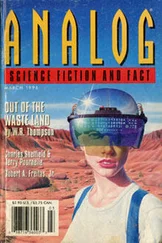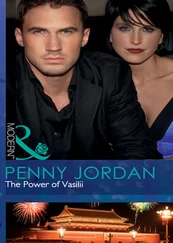Nadeem Aslam - The Wasted Vigil
Здесь есть возможность читать онлайн «Nadeem Aslam - The Wasted Vigil» весь текст электронной книги совершенно бесплатно (целиком полную версию без сокращений). В некоторых случаях можно слушать аудио, скачать через торрент в формате fb2 и присутствует краткое содержание. Год выпуска: 2009, Издательство: Faber and Faber, Жанр: Современная проза, на английском языке. Описание произведения, (предисловие) а так же отзывы посетителей доступны на портале библиотеки ЛибКат.
- Название:The Wasted Vigil
- Автор:
- Издательство:Faber and Faber
- Жанр:
- Год:2009
- ISBN:нет данных
- Рейтинг книги:4 / 5. Голосов: 1
-
Избранное:Добавить в избранное
- Отзывы:
-
Ваша оценка:
- 80
- 1
- 2
- 3
- 4
- 5
The Wasted Vigil: краткое содержание, описание и аннотация
Предлагаем к чтению аннотацию, описание, краткое содержание или предисловие (зависит от того, что написал сам автор книги «The Wasted Vigil»). Если вы не нашли необходимую информацию о книге — напишите в комментариях, мы постараемся отыскать её.
The Wasted Vigil — читать онлайн бесплатно полную книгу (весь текст) целиком
Ниже представлен текст книги, разбитый по страницам. Система сохранения места последней прочитанной страницы, позволяет с удобством читать онлайн бесплатно книгу «The Wasted Vigil», без необходимости каждый раз заново искать на чём Вы остановились. Поставьте закладку, и сможете в любой момент перейти на страницу, на которой закончили чтение.
Интервал:
Закладка:
The car drove away but it was back minutes later, coming to a screeching stop beside him on the sidewalk and disgorging four men. They were friendly, more or less his own age, and they invited him to a nearby teahouse, very pleased to have met an American, asking him how they could migrate to USA the Beautiful. When he regained consciousness about two hours later, in a back alley, the skin on his head was split open in two places. There were cuts and bruises on the rest of his body too. He had no coherent memory except a faint impression of the car driver’s features filled with malice, of an arm locking onto his neck from behind to choke him. By not reacting how he was meant to when the car jolted forward suddenly, David had obviously caused the driver to lose face with his companions.
David thought he’d never encounter this man again, but he would see him only a few hours later under circumstances even more murderous. He’d learn that his name was Fedalla. And, some years from now, he would be one of the first people David would suspect of being involved when Zameen and Bihzad disappeared.
Blood on his face and clothes like a wild cursive script, he arrived at the US embassy around noon and was admitted when he produced his passport. The nurse had just finished attending to him when buses began pulling up outside the main gate. Hundreds of armed men streamed out in wave upon wave and began jumping over the perimeter fence, firing guns and hurling Molotov cocktails.
There were six Marines at the embassy but they were not allowed to open fire. They were in any case massively outnumbered. Within minutes, one of them, a twenty-year-old from Long Island, had caught a bullet in the head.
The rioters were led by a gang of students from the fundamentalist Islamic wing of the city’s university. Inspired by the events in Tehran and the fire-breathing triumph of Ayatollah Khomeini, they had been waiting for a chance to demonstrate their own power.
David, and 139 embassy personnel and the dying Marine, found themselves behind the steel-reinforced doors of a vault on the third floor as they waited for the Pakistani government to send police or military troops.
The vault echoed to the sound of a sledgehammer coming down on CIA code equipment that could not be allowed to fall into the hands of the mob, a mob now fifteen thousand strong.
Around and below them, the building was on fire, the floor of the vault beginning to get intensely hot, the tiles blistering and warping under their feet. The other Marines were still out there but the request from them to open fire was repeatedly denied as it would only incite the riot further. When the ground floor had completely filled with smoke the Marines retreated upstairs to join the others in the vault, dropping tear-gas canisters down each stairwell as they came.
Despite pleas from the ambassador and the CIA station chief, hour after hour passed without any rescue attempt by the Pakistanis. Giant columns of gasoline-scented smoke issued from the building, visible from miles away — miles away where rioters arriving in government-owned buses were also attacking the American School while children lay cowering in locked rooms.
The mob at the embassy climbed onto the roof and pounded on the hatch door that led down into the vault. David, looking up at the ceiling, watched it buckle and twist from the blows over the course of an hour, the oxygen running out, many around him fainting or vomiting. But the hatch door held and as the sun set over Islamabad the rioters dissolved away into the darkness.
From the vault they emerged with the body of the dead Marine. Two Pakistani employees of the embassy lay on the first floor, killed by asphyxiation and then badly burnt. An American airman had been beaten unconscious and left to die in the fire.
Climbing onto the roof David saw the arrival of a few Pakistani troops at last. They stood around, and David thought he recognised one of them — the young man who had been behind the steering wheel of the car. The photographs that were taken of these moments would later confirm his suspicions. Fedalla. So he was in the army.
Later that evening David, and most of the others who had feared for their lives in the vault for over five hours, were amazed to learn that President Carter had just telephoned Pakistan’s dictator General Zia and thanked him for his help.
In the near future, upon joining the CIA, David would know that the explanation for some events existed in another realm, a parallel world that had its own considerations and laws. As he watched Pakistan’s ambassador in Washington accept the gratitude of the United States and claim that Pakistani Army troops had reacted ‘promptly, with dispatch’, he had little idea of the larger things at stake, didn’t know why the United States could not afford to dwell on the issue. Khomeini’s revolution had meant the loss of important listening posts in Iran that had been trained on the Soviet Union. General Zia had accepted a CIA proposal to locate new facilities on Pakistani soil.
Strange sacrifices were required in that shadow-filled realm, strange compromises. In another month the Soviet Union would invade Afghanistan, and Pakistan’s corrupt and brutal military dictator would become a fêted ally of not just the United States but of most of the Western world, David himself present on a number of occasions where the man was extravagantly celebrated and flattered, his own voice adding to the dishonest chorus.
‘LARA CARRIES WITH HER a leaf from the Cosmos Oak that grows in the Kremlin,’ Marcus tells David. ‘Her cosmonaut father was killed when his spacecraft malfunctioned during the return to Earth in 1965.’
The two men are at the lake, beside the small fire that David has built. Night insects, knees and elbows of finest wire, cross and recross the zone of light around the flames.
‘There were rumours he knew while still in orbit that he was doomed, that his death screams during the dive back towards the world were recorded by American monitoring stations.’
‘Where is she now? Does she know we are out here?’
Marcus points to a lit window on the first floor of the house. ‘She knows where we are. I have told her she’ll never be left alone here again. One of us will always be with her.’ Marcus has a rose blossom with him, and he smells its petals from time to time. It is from one of the plants which he has patiently retaught their former elegance.
David brings more wood for the fire, two sword-length dead branches which he breaks into eight sections, leaning them onto the burning pyramid, at evenly spaced points.
He looks towards her window. The Cosmos Oak was planted to mark the first manned space flight by Yuri Gagarin, he knows.
‘Her father’s last journey had been timed to celebrate a day of International Solidarity,’ Marcus says, ‘and the Kremlin ordered the launch despite the chief designer’s refusal to sign the flight endorsement papers for the reentry vehicle.’
‘I remember when we landed on the moon in 1969. Jonathan took me to have what they were calling “moon burgers”. There was a small American flag planted on top of the bun.’ He smiles at the memory. ‘I was about twelve, he must have been eighteen.’
A few minutes before midnight they walk up to the house to collect Lara — waiting for her by the threshold’s cypress trees until she emerges with a lamp — and then the three of them go to David’s car to listen to the news bulletin. The batteries of the kitchen radio are lifeless due to use and David will have to pick up new ones tomorrow. A night journey, along the curved sequence of Persian lilac trees. Marcus says that when Muhammad’s disciples were leaving his house, he would put his hand out of the door and the light from his palm would light their way home.
Читать дальшеИнтервал:
Закладка:
Похожие книги на «The Wasted Vigil»
Представляем Вашему вниманию похожие книги на «The Wasted Vigil» списком для выбора. Мы отобрали схожую по названию и смыслу литературу в надежде предоставить читателям больше вариантов отыскать новые, интересные, ещё непрочитанные произведения.
Обсуждение, отзывы о книге «The Wasted Vigil» и просто собственные мнения читателей. Оставьте ваши комментарии, напишите, что Вы думаете о произведении, его смысле или главных героях. Укажите что конкретно понравилось, а что нет, и почему Вы так считаете.












